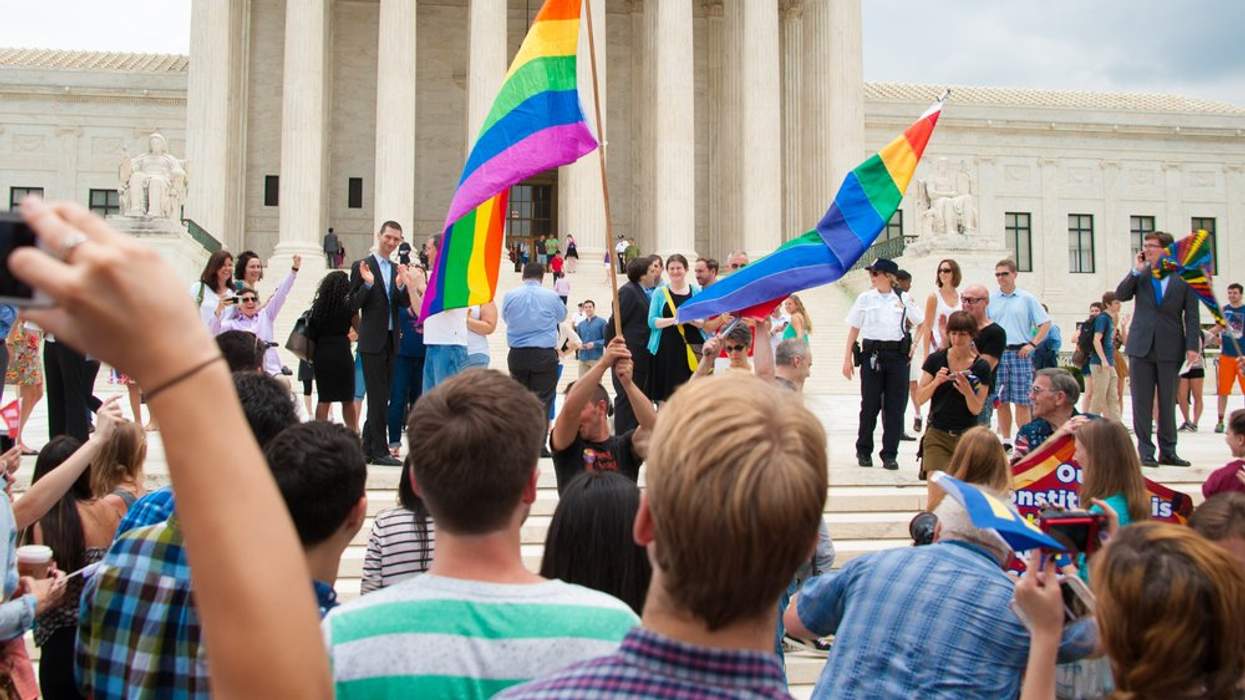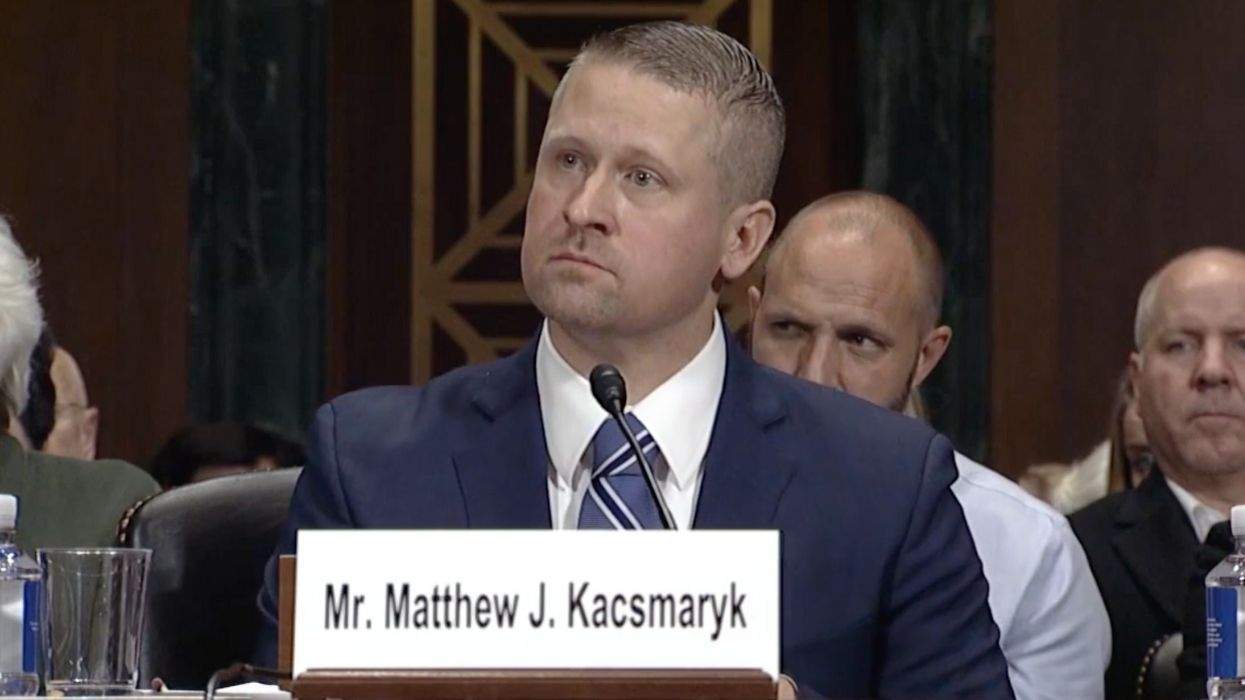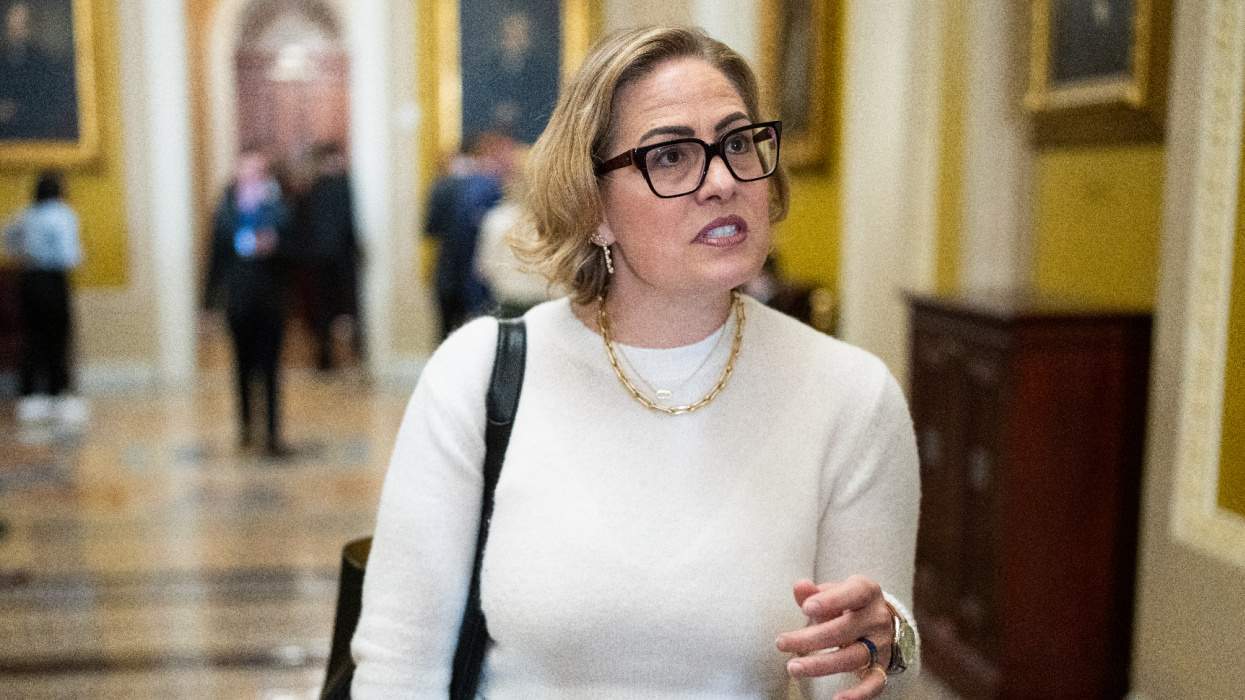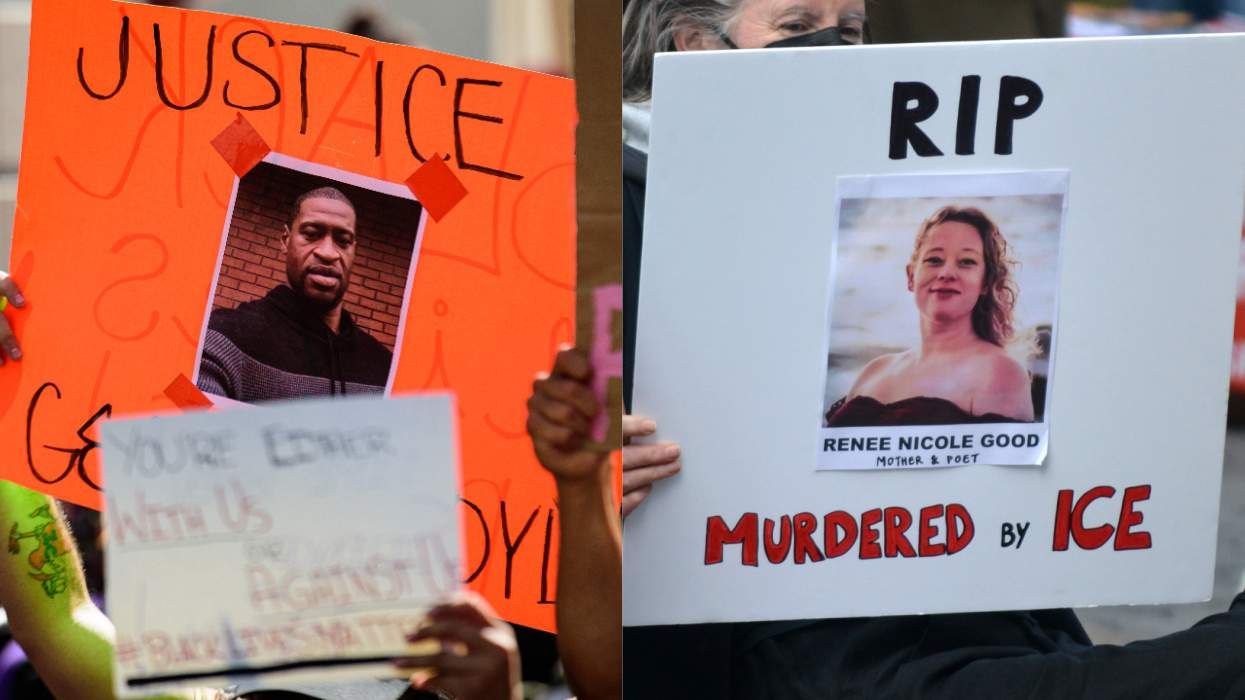The nation's highest court is set to release a ruling Friday that will determine whether or not a business can refuse to serve someone simply because they are LGBTQ+. In 303 Creative, Inc. v. Elenis, a web designer out of Colorado is claiming that serving LGBTQ+ customers would violate her religious beliefs, and therefore her First Amendment rights.
Because her service is “expressive,” “artistic,” and “customized,” Lorie Smith believes that does not have to comply with the state's anti-discrimination laws — which include LGBTQ+ people.
But wait, didn't we already rule on this?
The case is almost identical to one from 2018, in which the court determined that a baker (also in Colorado) had the right to refuse to make a wedding cake for a same-sex couple. While real LGBTQ+ couples were rejected and discriminated against in that case, Smith's challenge is different.
According to her own petition, Smith was never asked to make a website for a same-sex wedding — in fact, she's never been asked to make any wedding website. She was, however, allegedly notified by a person named Stewart about his wedding to a person named Mike. However, some have raised doubts about the legitimacy of the message.
The "designer" simply wanted to start making websites for weddings, and filed her lawsuit in an attempt to avoid LGBTQ+ customers altogether. An email Smith's team provided to the court that did indicate that a person named Stewart wanted to ask about
The case was actually brought on her behalf by the same conservative group that brought Masterpiece Cakeshop v. Colorado.
The Alliance Defending Freedom (ADF) is a group dubbed a “Christian legal army” by its founder, which has a long history of opposing civil rights protections for LGBTQ+ people. The Southern Poverty Law Center categorizes ADF as an anti-LGBTQ+ hate group.
The nonprofit writes that the ADF is "a legal advocacy and training group that has supported the recriminalization of sexual acts between consenting LGBTQ adults in the U.S. and criminalization abroad; has defended state-sanctioned sterilization of trans people abroad; has contended that LGBTQ people are more likely to engage in pedophilia; and claims that a 'homosexual agenda' will destroy Christianity and society."
Despite Smith never designing a wedding website, and despite not alleging any legal injuries, the ADF has worked with her to challenge Colorado's anti-discrimination laws altogether.
The state has argued that their laws do not force Smith to go against her beliefs — they only require her businesses to provide the same goods or services to people of all sexual orientations and gender identities.
"Not only has this case been manufactured, which is unusual in terms of the way litigation develops, but it has been done so for the express purpose to harm same-sex couples, and that has been the ADF's mission for many, many years now," Anthony Michael Kreis, an assistant professor of law at Georgia State University’s College of Law, told Teen Vogue.
The American Civil Liberties Union, which represented the gay couple denied a cake, previously filed an amicus brief in the ongoing case, urging the court to reject Smith's arguments. They noted that if the business is given an "artistic" exemption, judges will be left to decide what businesses fall into that category.
Meaning that while Colorado law may still say that LGBTQ+ people are protected from discrimination in fields such as housing and education, a judge's opinion could change how the law is applied and enforced, ultimately undermining the anti-discrimination rules in their totalty.
"Granting businesses that choose to sell to the public a free speech right to discriminate if their product is expressive would either swallow the rule against discrimination or require judges to make impossible assessments about whether a good or service is sufficiently expressive to give rise to a right to discriminate," the ACLU wrote.
Unfortunately, because the court previously ruled 7-2 that the bakery owners should be allowed to discriminate, it is unlikely the current conservative-dominated court will decide otherwise now.
A version of this story was first published on The Advocate Channel.
















Charlie Kirk DID say stoning gay people was the 'perfect law' — and these other heinous quotes
These are some of his worst comments about LGBTQ+ people made by Charlie Kirk.